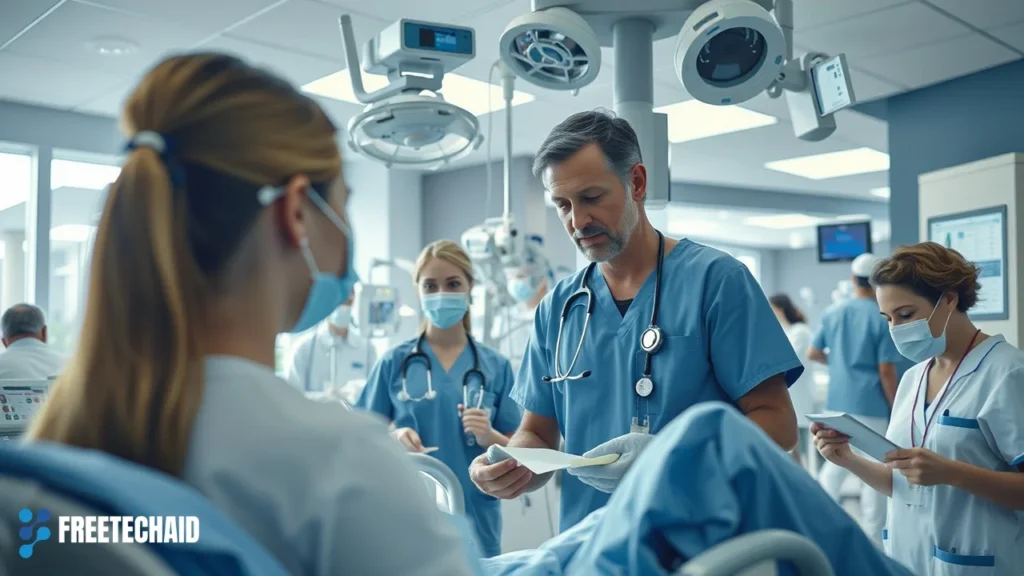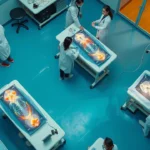Introduction
Health care may conjure images of doctors and nurses. Behind the scenes, another team of specialists is working hard to ensure patients receive superior healthcare Patient Care Techs. These specialists play an essential part in modern healthcare systems by connecting medical personnel; their personalized approach contributes significantly towards increasing patient quality care, satisfaction with service provision, and overall system performance.
What is a Patient Care Tech?
PCTs are healthcare professionals who support nurses, doctors, and other medical staff by ensuring patients get the appropriate required treatments. Their work may encompass administrative, technical, and clinical duties, making them incredibly important in any healthcare setting.
Patient Care Techs differ from Certified Nursing Assistants (CNAs) in that they typically have more varied duties, such as operating medical equipment and conducting advanced processes. As essential healthcare team members, Patient Care Techs ensure operations run efficiently while creating positive patient experiences.
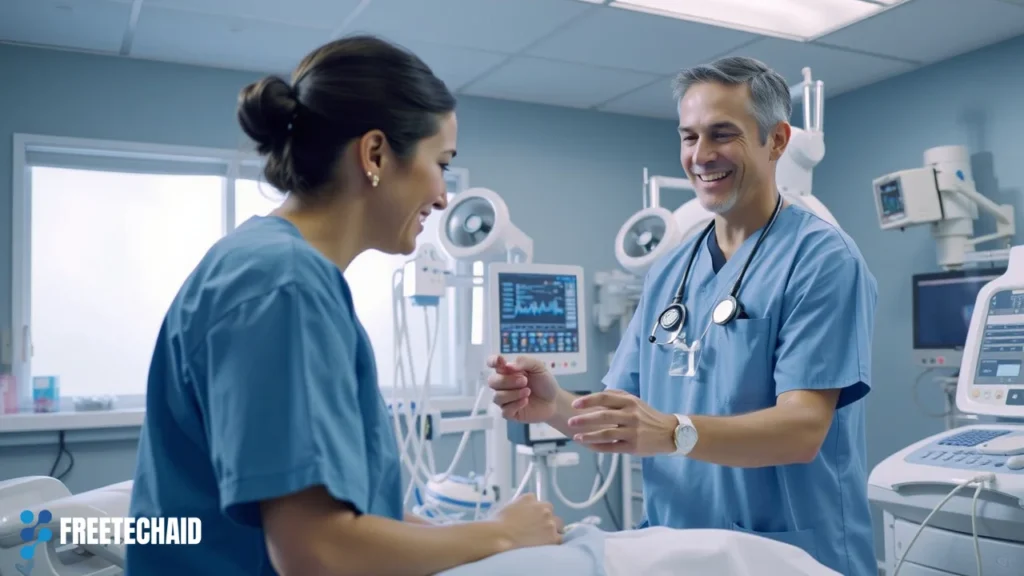
Key Responsibilities of a Patient Care Tech
Techs for PCT hold responsibilities ranging from direct patient care to administrative support. The primary duties of a patient care tech are:
Assisting with Patient Hygiene and Comfort
- Aiding patients in showering, dressing, and taking care of grooming.
- Ensuring that patients feel comfortable during their time in hospital.
Monitoring Patient Vitals
- Monitoring vital indicators like temperature, blood pressure, and heart rate.
- Informing the nursing team.
Administrative Support Tasks
- Record keeping for patients and updating charts.
- Helping schedule and assist with patient appointment processes.
Providing Emotional Support
- Assisting families and patients in difficult times.
- Acting as a caring presence even in stressful environments.
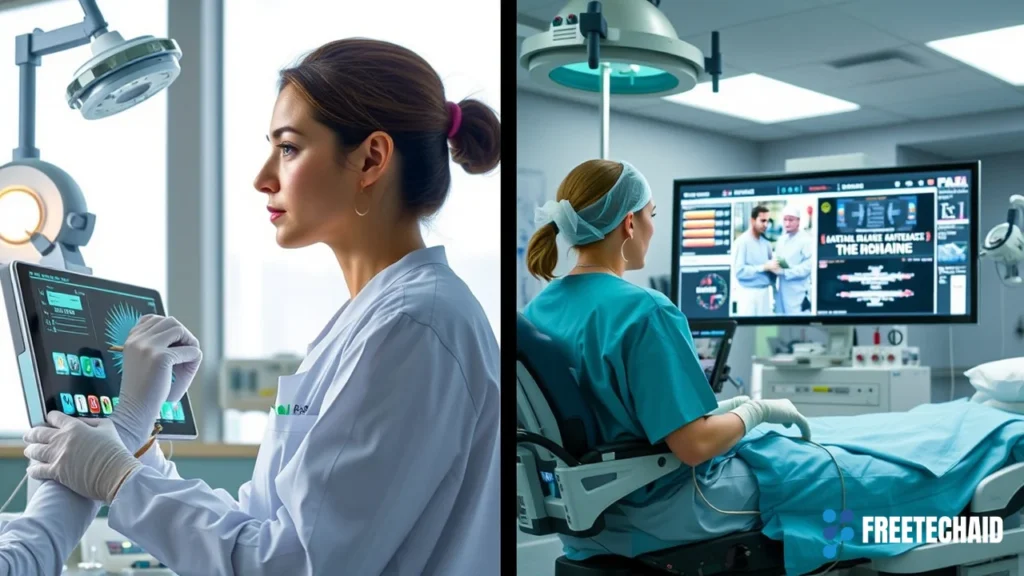
Read More Article: Rad Tech Boot Camp: Fast-Track Your Radiology Career Today
Skills Required to Be a Successful PCT
Realizing excellence as a PCT requires the perfect blend of technical abilities and personality traits, such as:
- Practical Communication Skills: Effectively interacting with family, patients, and medical professionals requires practical communication skills.
- Technical Expertise: Understanding of devices for monitoring patients and medical equipment. Devices.
- Companion and Empathy: Real compassion for patients as well as their health.
- Flexible: Capable of operating effectively within an intense, fast-paced environment.
They use these skills to deliver excellent service as they confront the ever-evolving challenges in healthcare settings.
Educational Requirements for PCTs
Becoming a Certified PCT requires meeting specific qualifications and education. For instance:
- High School Diploma or GED: Entrance requirements to training programs require this credential for successful admission. Certification Programs: Many facilities offer Patient Care Tech programs that may last several months or up to a year.
- Licensing: Passing a Certified patient care technician/assistant (CPCT/A) test is typically needed.
Leading institutions such as the American Red Cross and local community colleges can provide high-quality training for those who wish to become aspiring Health Care Technicians.
Work Environment and Daily Life of a PCTs
Technicians working directly with patients are employed in many environments, from clinics and hospitals to nursing homes and rehabilitation facilities. An average day may involve assisting multiple patients while working alongside healthcare providers and handling administrative duties.
PCTs face physical and mental challenges while fulfilling their jobs, yet their work can be very satisfying. Patient care Technicians typically form strong bonds with patients to promote well-being and speed recovery.
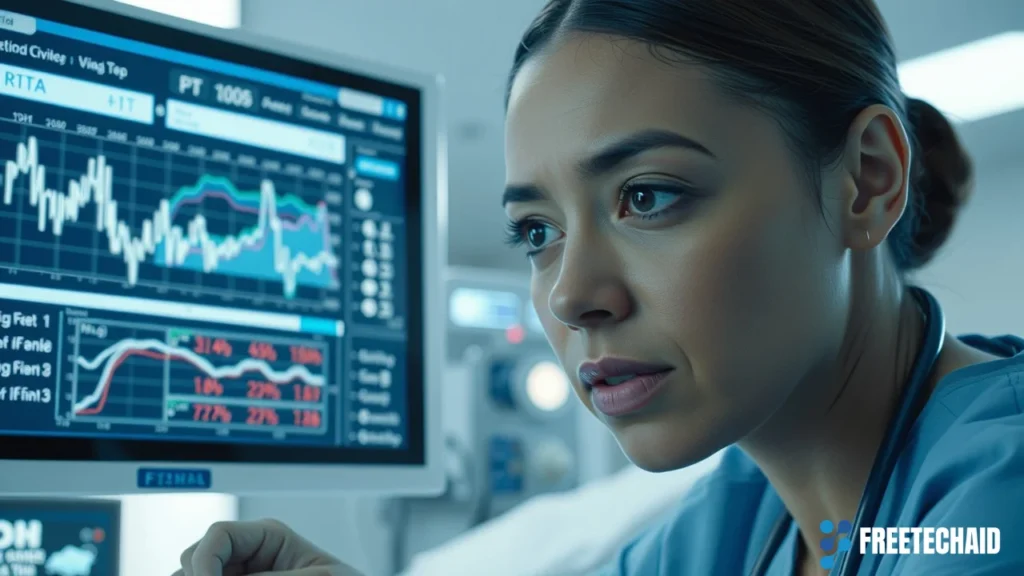
Differences Between a Patient Care Tech and a CNA
While they’re similar, Technicians for Patient Care and Certified Nursing Assistants (CNAs) differ in many aspects:
- Care and Practice Scope: Care Techs usually perform more complex tasks, including medical equipment.
- Training Requirements: The PCT training requirements could cover topics not covered in the PCT program, such as phlebotomy or EKG monitoring.
- Career Options: Health Care Techs usually have more chances to advance.
Impact of PCTs on Healthcare Systems
The value made by PCTs is incalculable. They:
- Reduce the burden on nurses as well as doctors.
- Enhance the quality of patient care by providing active support.
- Improve the efficiency and effectiveness of healthcare services.
In taking on crucial but lengthy tasks, it allow medical professionals to take on various tasks.
Salary and Job Outlook for Patient Care Techs
Due to an increasingly elderly population and increasing demand for healthcare services, PCTs jobs are in high demand.
- Average Salary: Average annual salaries range between $30k-$40k depending upon location and experience level.
- Jobs Development/Growth: According to the U.S. Bureau of Labour Statistics estimates, healthcare-related professions such as Patient Care Technicians are poised for significant job growth over the coming decade.
Advancement Opportunities for Patient Care Techs
PCTs typically view their position as an entryway into more prestigious healthcare careers with various advancement opportunities in this sector of the economy. Potential routes could include healthcare administration positions:
- Specialization: The specializations include becoming a phlebotomy and an EKG technician.
- Further Education: Achieving the degree of a nurse or healthcare management certificate.
Why PCTs Are Indispensable in Modern Healthcare
In an era where health systems are under more pressure, it play crucial roles in solving staff shortages and ensuring high-quality medical care. Their flexibility and commitment help ensure the efficient functioning of healthcare institutions.
Conclusion
Patient Care Techs are unsung heroes in health care, providing crucial assistance and services to patients and medical professionals. As demand for this position continues to increase, more career options exist than ever for these techs becoming one may provide individuals with fulfilling professional lives that help people live fulfilling lives. If healthcare is your field of choice, then becoming a PCT could mark a successful and fulfilling path forward!
FAQs
Q1. What does a Patient Care Tech do?
It gives hands-on treatment to patients, supports medical personnel, and handles administrative duties to assure efficient health care service.
Q2. How can you become a patient care tech?
Get an education degree at the high school level, join a certification course or program, and then pass the CPCT/A test to be a certified PCT.
Q3. What’s the distinction between a CNA and a PCT?
Although both jobs focus on providing patient care, the PCTs typically have other responsibilities, including dealing with medical equipment.
Q4. What is the key skill needed to become a PCT?
Essential skills required of healthcare practitioners include communication and empathy skills and technical proficiency to meet the demands of a healthcare setting.

